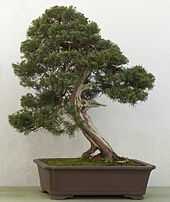Birmingham Botanical Gardens
| Birmingham Botanical Gardens | |
|---|---|
 | |
| Location | Edgbaston, Birmingham, England |
| Coordinates | 52°27′59″N 1°55′45″W / 52.46652°N 1.9293°WCoordinates: 52°27′59″N 1°55′45″W / 52.46652°N 1.9293°W |
| Created | 1832 |
| Website |
birminghambotanicalgardens |
The Birmingham Botanical Gardens is a 15 acre / 6 hectare botanical gardens situated in Edgbaston, Birmingham, England. The gardens are close to the centre of Birmingham and open every day except Christmas Day and Boxing Day. They are located at grid reference SP049854. It is an independent educational charity.
History
The Gardens are very old, being designed in 1829 by J. C. Loudon, a leading garden planner, horticultural journalist and publisher. The Gardens opened to the public on June 11th 1832.
The layout of the Botanical Gardens has changed very little since Loudon first designed it. There are four glasshouses which range from the exotic Tropical glasshouse, through to the Subtropical, Mediterranean and Arid Houses. There is a large lawn in front of the glasshouses with a range of beds and shrubberies around its perimeter. Overall, the character is that of a Victorian public park with a bandstand set in 15 acres (6.1 ha) of landscaped greenery. It is hard to believe that the beautiful and tranquil Gardens are located just one and a half miles from the centre of Birmingham.
Plants

The Gardens contain over 7,000 different plants and are home to The British National Bonsai Collection. One of the oldest specimens is the "Omiya tree", a 250-year-old Juniperus chinensis in the informal upright style, presented to the collection in 1995 by the then city of Omiya, Japan. There are many unusual and notable plants in the gardens including two fine Himalayan Cedars near the fountain which were planted from seeds given to the gardens in the 1840s by James Watt Junior, son of James Watt whose improvements to the Newcomen steam engine were fundamental to the changes brought by the Industrial Revolution. A plant found nowhere else is the fern Dicksonia ×lathamii which is a hybrid between Dicksonia antarctica and Dicksonia arborescens, raised by ex-Curator W. B. Latham more than one hundred years ago.
Birds
The Gardens are also home to a small collection of exotic birds from around the world including the white-cheeked turaco, Himalayan monals, azure-winged magpies and quaker parakeets. Most birds are located in the white-domed lawn aviary building that provides a focal point on the main lawn. There is also a wetlands enclosure that contains ornamental waterfowl including different species of ducks. Some of the birds have been at the Gardens a very long time including a sulphur-crested cockatoo called Jenny that has entertaining visitors with her chatter for over 30 years. There is always at least one Peacock roaming wild in the grounds. There is also a seasonal butterfly house- see website for details.
Playground
There are two playground areas for children, a traditional one consisting of swings, a slide, etc. and additionally, a children's discovery garden where children can learn about plants through interactive play.
Education
The Gardens provides a unique service to schools and colleges in the West Midlands and beyond. Pupils will enjoy observing the fascinating ways that plants adapt themselves to different world climates. The education programme on offer is cross-curricular and teachers are able to choose from a wide range of different teaching sessions. Schools are able to use the purpose-built education building called the Study Centre that contains fully carpeted rooms, cloakroom space and toilets. The Centre is the hub for all education activities at the Gardens including lesiure learning courses for adults and has rooms available to hire.
China Wilson

From 1893-1897, Ernest Henry "China" Wilson was a trainee botanist at the gardens.[1] He went on to become a notable plant collector.[1] In May 2010, a blue plaque was erected at the Gardens, by the Birmingham Civic Society, marking his time there.[1]
Events
There is an all-year events programme that includes family activity sessions for youngsters, outdoor theatre, plant fairs and shows and a band performs in the bandstand every Sunday afternoon between April and October.
Gift Shop
There is a gift shop and plant centre open daily, selling a wide range of gifts, souvenirs and plants.
Catering
There is a tearoom selling lunches, snacks and drinks daily. There are 3 function rooms ( Loudon, Garden and Terrace Suites) which can be hired for conferences, birthdays, weddings, etc.
See also
| Wikimedia Commons has media related to Birmingham Botanical Gardens. |
References
- ↑ 1.0 1.1 1.2 Keogh, Kat (2010-05-31). "Blue plaque unveiled at Birmingham Botanical Gardens in Edgbaston to plant hunter Ernest Henry Wilson". Birmingham Mail. Retrieved 25 February 2012.
External links
| ||||||||||||||||||||||||||||||